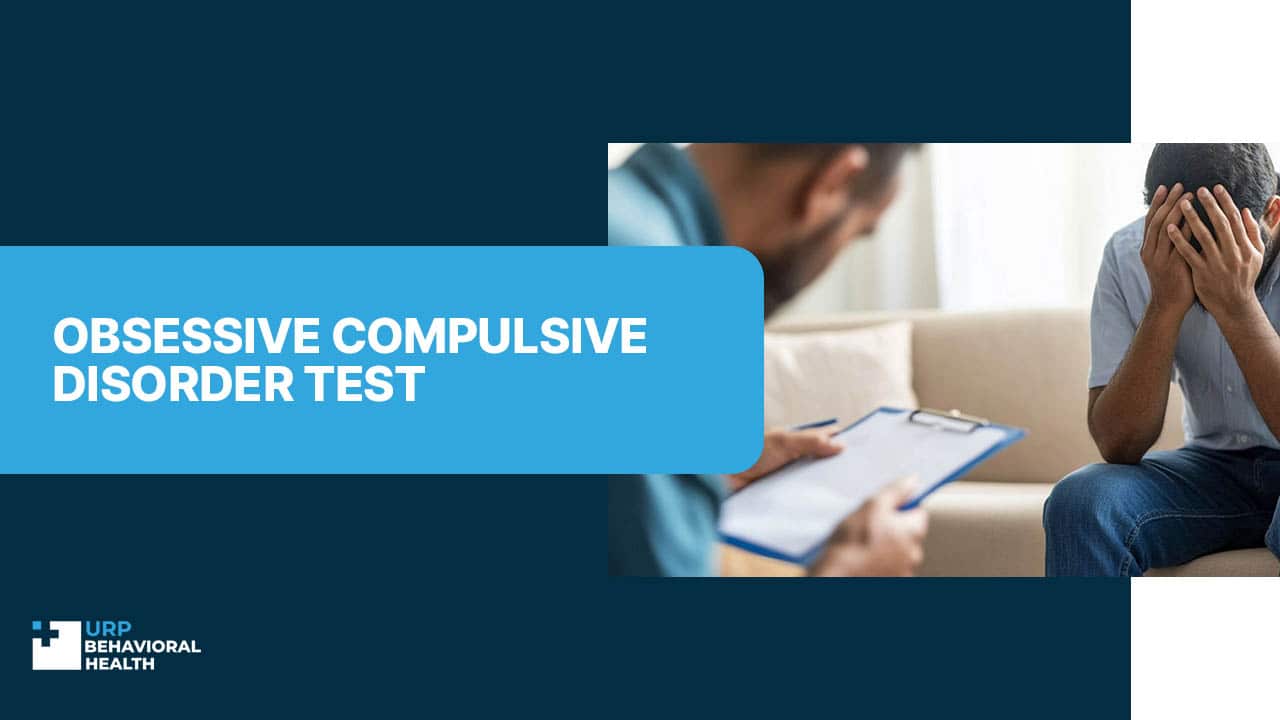
Obsessive Compulsive Disorder Test
Obsessive-compulsive disorder or OCD is a serious mental health condition that combines ungoverned and recurring thoughts and iterative demeanors [1]. Some OCD symptoms might be misleading, making you confuse it with hypochondria, body dysmorphic disorder, hoarding disorder, and others [2]. How do you know if you have OCD? Test options around the Web offer an instant glimpse into possible symptoms, but are they accurate enough for self-diagnosis? Is there a test for OCD that provides definite results? Read on to see.
What Is a OCD Test?
Unlike definite depression screening tools , less is known about scientifically established OCD screening tests. The reason is that many stars should align in a certain way for the diagnosis of OCD, including the following criteria:
- Obsessions (intrusive and recurrent thoughts or urges that cause apprehension and distress) have to manifest into compulsive actions or mental acts aimed at diminishing these concerns;
- Obsessive-compulsive symptoms must interfere with social, employment, relationship, and other functional life spheres;
- Compulsive behaviors must take over an hour per day and don’t originate from other clinical conditions [2].
No obsessive compulsive disorder screening test takes into account your medical history, family history of mental health disorders, and symptomatic peculiarities. Standardized OCD screening tests take around 3 to 5 minutes to complete, and even websites offering these self-assessment instruments highlight that you can’t solely rely on OCD tests diagnosis. For precise results, you need a thorough clinical assessment from a specialist aware of the latest DSM-5 criteria [3] and your case intricacies.
Contact our admissions team now to begin your path toward a brighter future.
Types of Obsessive Compulsive Disorder Tests
A diagnostic test for OCD is available in different forms such as:
- Screening quiz. Commonly applied to track key OCD symptoms;
- Questionnaire. Contains a number of questions used to identify the main traits of OCD.
- Obsessive-compulsive scale. Comprises questions about obsessive thoughts and behaviors, and the total score requires deciphering by a mental health professional. Is typically followed by a symptom checklist asking a person about current and past symptoms, as well as specific obsessions and compulsions.
On average, it takes no more than 5 minutes to reply to 8 – 18 questions of a screening test for OCD and process the results. The process is straightforward, but passing a test for OCD disorder won’t provide you with an accurate psychiatric diagnosis. People use such a test for OCD symptoms assessment, but since many signs of clinical disorders may overlap, you’d better not count ultimately on the results.
Process of OCD Testing
Here’s a brief guidance on how to test OCD using either a screening quiz or questionnaire (for the obsessive-compulsive scale, you’ll need professional interpretation). Each OCD checking test contains a list of questions, requiring you to choose a matching response based on whether the statement applies to you and to which extent. If you’re a parent, you can try to take a test for your kid based on daily observations of their behavior.
The more consciously you approach the questions – the more accurate results you’ll receive. After you submit the answers, you’ll get the results, either immediately on the website page or in your email.
Purpose of Obsessive Compulsive Disorder Screening
An OCD symptoms test serves to identify the signs of a common mental health challenge that impacts 1% to 3% of people during their lifetime [2]. Though this disorder can have individual traits in different people, there are certain similarities across the population suffering from OCD. An OCD evaluation test unites these uniform characteristics and can provide valuable insight into a physical and emotional state, but it isn’t a full-fledged substitute for a professional diagnosis and individual psychotherapy.
If you have any concerns about your mental health, it’s reasonable to address a healthcare provider specializing in psychiatric disorders to approve or exclude the likelihood of having OCD.
Reach out today and let us create a treatment plan designed around your needs.
How Is OCD Diagnosed?
Nowadays, there are no specifically designed lab tests for OCD, and the only way you can get a verified diagnosis is to address a licensed mental health expert for professional screening [4]. They may conduct a preliminary clinical interview to assess existing symptoms, distressing thoughts, and troublesome demeanors. A doctor will likely apply the criteria from the Diagnostic and Statistical Manual of Mental Disorders to check on whether your symptoms comply with those established for OCD.
You may also need to answer questions about your family’s mental health history, your ability to function in daily life, and the way symptoms and behaviors influence your relationships. The average screening time varies from one hour to 90 minutes [4].
When Should You Consider Screening for OCD
If you struggle with persistent unwelcome thoughts or yearnings that result in recurrent behaviors or mental rituals, you’d better address a credible healthcare provider than browse a test to see if I have OCD. Early symptoms may show off whenever but usually begin in late childhood and young adulthood [5].
Once you are used to a certain OCD symptom (obsession or compulsion), it can take another form [5]. If this clinical disorder goes untreated, it can lead to heightened distress, apprehension, depression, and substance misuse. The condition significantly interferes with daily life, employment, relationships, and overall well-being. Timely intervention and support of a qualified, experienced clinician can pave the favorable way for treatment.
Where to Get Diagnosed With OCD
If you suspect you or your significant other may have obsessive compulsive disorder, passing an online OCD in adults test can’t serve as a diagnosis validation. Though it might help to distinguish the prevailing symptoms and their frequency, an OCD diagnostic test can’t replace an expert psychological evaluation. You can reach out to trained mental health professionals at URP Behavioral Health for a personalized treatment plan aimed at your healing promotion.
Our team will verify your insurance and design a plan tailored to your needs.
References:
- National Institute of Mental Health. (n.d.) Obsessive-Compulsive Disorder. NIMH Information Resource Center. Link: https://www.nimh.nih.gov/health/statistics/obsessive-compulsive-disorder-ocd. Access date: July 14, 2025.
- Hannah Brock, Abid Rizvi, Manassa Hany. Obsessive-Compulsive Disorder. Link: https://www.ncbi.nlm.nih.gov/books/NBK553162/. Access date: July 14, 2025.
- Substance Abuse and Mental Health Services Administration. Rockville (MD): Substance Abuse and Mental Health Services Administration (US); 2016 Jun. Impact of the DSM-IV to DSM-5 Changes on the National Survey on Drug Use and Health [Internet]. Link: https://www.ncbi.nlm.nih.gov/books/NBK519704/table/ch3.t13/. Access date: July 14, 2025.
- Krystina Wagner. How Obsessive-Compulsive Disorder (OCD) Is Diagnosed. Link: https://www.verywellhealth.com/ocd-diagnosis-5105153#:~:text=No%20blood%20test%20or%20imaging%20study%20can,professional%20can%20determine%20if%20you%20have%20OCD. Access date: July 15, 2025.
- National Institute of Mental Health. Obsessive-Compulsive Disorder: When Unwanted Thoughts or Irresistible Actions Take Over. Link: https://www.nimh.nih.gov/sites/default/files/documents/health/publications/obsessive-compulsive-disorder-when-unwanted-thoughts-take-over/obsessive-compulsive-disorder-508.pdf. Access date: July 15, 2025.
















